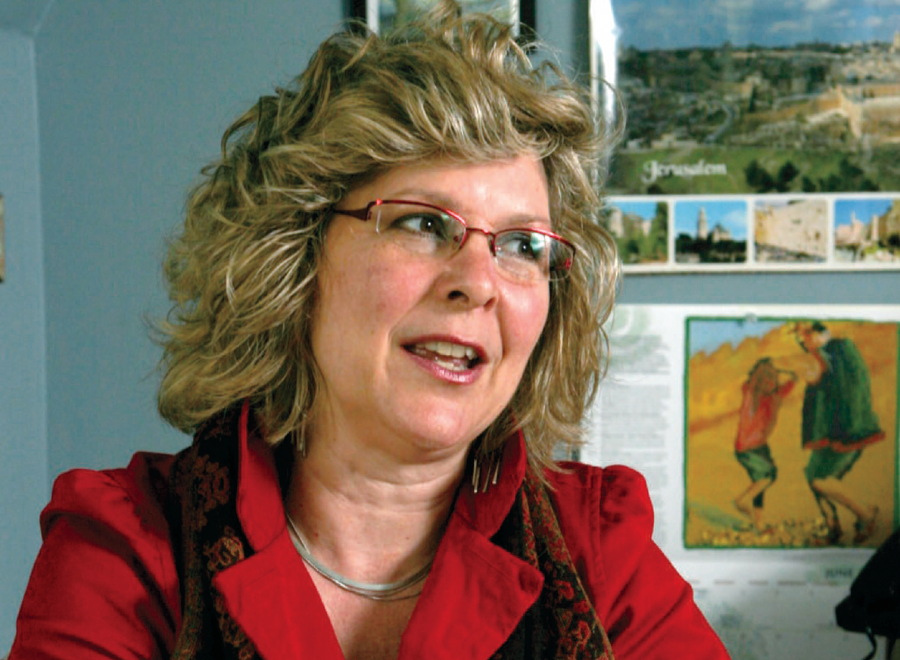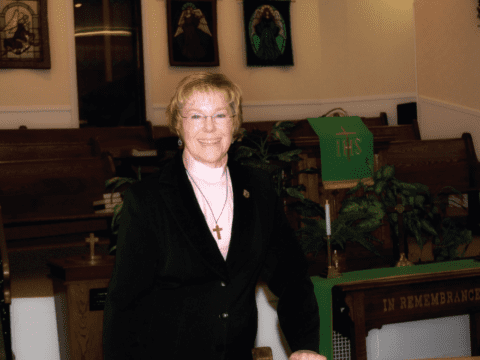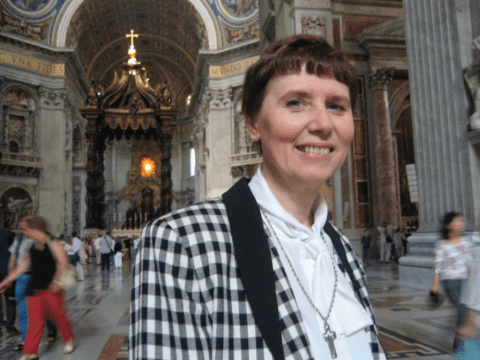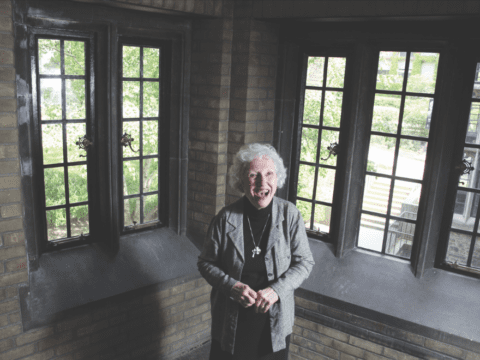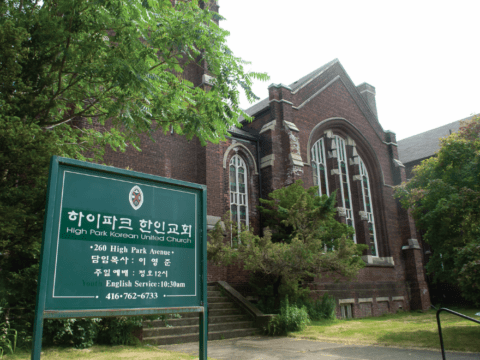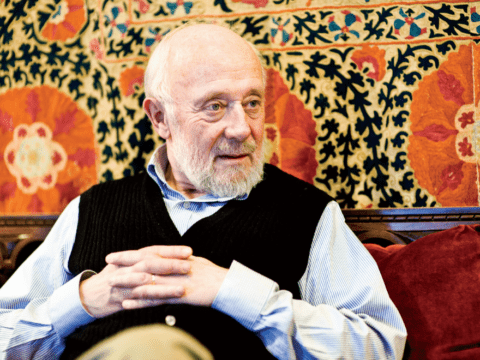Rev. Karen Hamilton, general secretary of the Canadian Council of Churches, is co-ordinating an interfaith summit to coincide with the G8 meeting in Canada next June. She talks to Jocelyn Bell about why people of faith must speak out in the face of suffering.
JOCELYN BELL: How many leaders will be attending the Interfaith Religious Leaders Summit in Winnipeg?
KAREN HAMILTON: About 100. There will be delegations of six to eight from each of the G8 countries, plus six to eight from Africa. A few international interfaith organizations will also be represented.
JB: What are the goals of the meeting and why is it important?
KH: Every year since 2005, there has been a faith leaders summit in the country hosting the G8. The goals are to challenge, encourage and inspire the G8 to do better in terms of meeting the Millennium Development Goals (MDGs), to make visible the fact that faith leaders care deeply about the people of the world and to engage the issues that will make a tremendous difference in the lives of so many.
And when I say tremendous, that’s an understatement. Every three seconds a child dies from poverty-related causes, completely unnecessarily. Every 30 seconds a child dies of malaria. The eradication of malaria is one of the Millennium Development Goals. It would cost $1 billion to eradicate it, and the United States just spent $300 billion on the auto bailout.
JB: The MDGs were set by the United Nations in 2000 and are supposed to be achieved by 2015. Among them are targets for reducing extreme poverty and child mortality, and fighting diseases such as malaria and AIDS. How close are the G8 nations to meeting their goals?
KH: In terms of its own commitments, the G8 is living up to only 51 percent. Some want to say it’s because we have an economic crisis. The 51-percent compliance with the G8’s own commitments, however, is the figure from before the economic crisis.
JB: So what’s the problem? Why isn’t the G8 getting there?
KH: There are probably complicated economic and political reasons. I think the G8 leaders have the best intentions. Most of them are people of faith. I mean, any person of good conscience doesn’t want to see people dying.
The most profound question is, why we haven’t spoken out? We as Canadians have not indicated that it’s important enough. Politicians have feelings and a conscience, too, but they need to hear from us. We’re complacent, for sure, but I think the issues seem so huge it’s really hard to know what individuals can do.
JB: What will failure to meet targets mean for people living in developing countries?
KH: For one, the economic crisis will cause 53 million more people to slip below the poverty line. Fifty-three million more! How can we stand by and watch this happen? Perhaps we get too wrapped up in our own personal cutbacks. Do we have to drive our cars less? Yes. Maybe we can’t have the holidays we had planned on. But we are talking life and death here.
JB: What’s the budget for the Interfaith Religious Leaders Summit?
KH: The entire budget is only $200,000. So far, cash in hand, we have over $30,000, which includes a very generous $20,000 contribution from The United Church of Canada, plus staff time. Lloyd Axworthy, president of the University of Winnipeg and a United Church member, has donated the university for the hosting of the summit, which is worth about $25,000. So if we could raise approximately another $145,000, we could do it.
JB: Where will the rest of the funding come from?
KH: It can come from anywhere. Some needs to come from other member denominations of the Canadian Council of Churches — some have already contributed — and from the interfaith partnership. There are 25 ecumenical interfaith organizations that have all come together in this partnership to host the 2010 summit, plus the 22 denominations of the Canadian Council of Churches. So I’m actually working with 47 different organizations.
JB: That’s a powerful image: different religious groups from across Canada coming together to host the faith leaders of the world — setting aside theological differences to speak out in the face of suffering.
KH: All faith traditions are called by what we call the “divine imperative” to care deeply and actively for our brothers and sisters around the globe. The call to compassion, care and social justice comes out of all the faith traditions.
JB: Does the idea of a joint statement from the world’s faith leaders carry weight with the G8?
KH: The power in a statement that comes from all those faith traditions is huge, because the G8 also sees that it represents millions of the world’s population.
JB: How receptive is the G8 to the faith leaders’ message?
KH: We are being taken more and more seriously. We’re moving into the sixth interfaith summit, so the G8 leaders expect a statement from the faith leaders.
JB: Will the religious leaders have an opportunity to meet with the G8?
KH: I have put in a formal request to the G8 for a meeting of six to eight faith leaders with the G8 political leaders. To my shock and surprise, I have not been turned down. They haven’t said yes, but it’s early days. If we get a meeting in Canada, it will be the first time the faith leaders have met face to face with the G8 leaders.
JB: Compared to protests that make the evening news, how effective is writing and submitting a statement?
KH: The G8 needs to see an articulation of what we believe. But it can’t stop there. We also have to mobilize the voices of the people. It is my hope and prayer that denominations like The United Church of Canada will take the draft statement and send it to every congregation in the country with a covering letter from the moderator saying, “This is essential to the lives of millions of people in the world.” Then start discussion groups. Our draft statement will be posted online sometime around Sept. 15.
JB: How can Canadians seize this opportunity to influence the G8?
KH: Talk to your local member of Parliament. What if every MP in the country got five visits from September to June? It would change everything. And you don’t need to be an expert on the G8 or on the Millennium Development Goals. All you have to do is take a copy of the MDGs to your MP and say, “The G8 is meeting in Canada in June 2010. We know that people are dying, we know that the MDGs are not on track to be met in 2015. We care. We expect Canada to take a major leadership role.”
***
This story first appeared in The United Church Observer’s September 2009 issue with the title “‘The power in a statement from all with traditions is huge.’”

